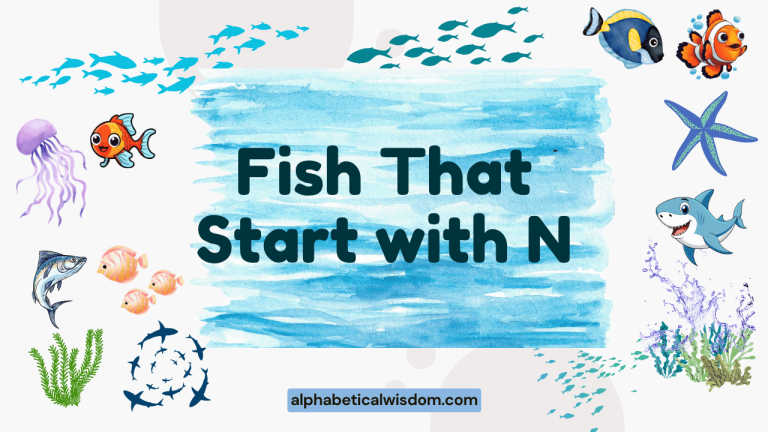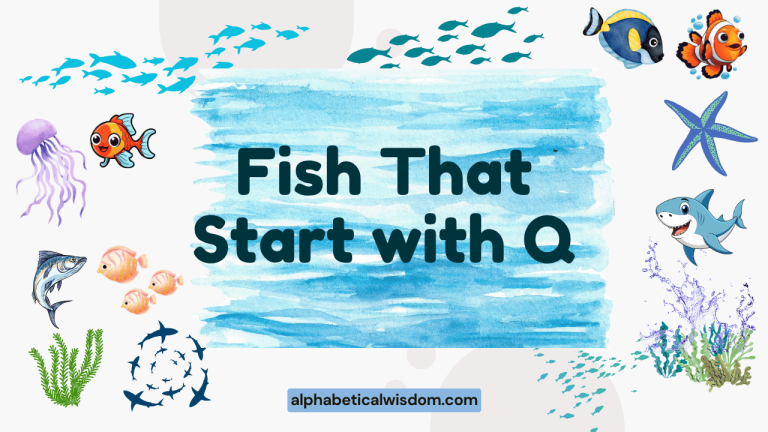Singular ‘S’ Nouns: A Comprehensive Grammar Guide
Understanding nouns that, despite ending in ‘s’, are treated as singular in English is crucial for accurate and effective communication. This grammatical concept often presents challenges for English language learners, as the ‘s’ ending typically denotes plurality.
This article provides a detailed exploration of these nouns, covering their definitions, categories, usage rules, and common errors. Whether you’re a student, a teacher, or simply someone looking to refine their English skills, this guide will equip you with the knowledge and tools to master the nuances of singular ‘s’ nouns.
Table of Contents
- Introduction
- Definition of Singular ‘S’ Nouns
- Structural Breakdown
- Types and Categories
- Examples of Singular ‘S’ Nouns
- Usage Rules
- Common Mistakes
- Practice Exercises
- Advanced Topics
- FAQ
- Conclusion
Definition of Singular ‘S’ Nouns
Singular ‘s’ nouns are nouns that end with the letter ‘s’ but are grammatically treated as singular. This means they take singular verbs and singular pronouns.
These nouns often cause confusion because the ‘s’ ending typically indicates a plural form. Understanding these nouns is essential for maintaining grammatical accuracy in both writing and speech.
Identifying them correctly requires careful attention to context and meaning, as the presence of ‘s’ is not a definitive indicator of plurality.
These nouns can be categorized into specific groups, such as academic subjects, diseases, games, and other miscellaneous terms. Each category has its own set of common nouns that fall under this rule. The function of these nouns is to represent a single entity or concept, despite their plural-looking form. For instance, mathematics is a field of study, not a collection of mathematical concepts. Similarly, measles is a disease, not multiple diseases.
Structural Breakdown
The structural anomaly of singular ‘s’ nouns lies in their morphology. Typically, the addition of ‘s’ to a noun signifies plurality in English.
However, these nouns defy this rule, functioning as singular entities despite their ‘s’ ending. This characteristic stems from the historical development of these words and their specific meanings within the English language.
Analyzing the structural breakdown involves understanding that the ‘s’ is an integral part of the word’s base form, rather than an affix denoting plurality.
Consider the noun economics. The ‘s’ is not added to make it plural; rather, it is part of the word’s established form to describe a particular field of study. Therefore, the grammatical treatment of such nouns must align with their singular conceptual nature. This requires careful attention to subject-verb agreement and pronoun usage, ensuring that these nouns are consistently treated as singular in sentences.
Types and Categories
Singular ‘s’ nouns can be classified into several categories based on their meanings and usage. Here are some of the most common categories:
Fields of Study
Certain academic disciplines are almost always treated as singular nouns, even though they end in ‘s’. These include:
- Mathematics
- Physics
- Economics
- Politics
- Statistics
- Linguistics
- Acoustics
- Thermodynamics
- Cybernetics
- Ethics
Diseases
Some diseases are referred to using nouns ending in ‘s’ but are considered singular. Examples include:
- Measles
- Mumps
- Rickets
- Shingles
- Diabetes
Games
A few games use names that end in ‘s’ and are treated as singular nouns. Examples include:
- Darts
- Billiards
- Bowls
Mathematical Terms
Certain mathematical terms, although less common, also follow this pattern:
- Series
- Coordinates
News and Information
The word ‘news’ is a classic example of a singular ‘s’ noun. It refers to current events and is always treated as singular, even though it ends with an ‘s’.
Other Nouns
There are also several other nouns that do not fit neatly into the above categories but are still treated as singular despite ending in ‘s’. Examples include:
- Alms
- Gallows
- Headquarters
- Works (as in ‘the steel works’)
- Summons
Examples of Singular ‘S’ Nouns
To further illustrate the usage of singular ‘s’ nouns, here are several examples categorized for clarity. Each table provides a collection of sentences demonstrating the correct grammatical treatment of these nouns.
The following table showcases the use of singular ‘s’ nouns within the context of fields of study. Note how each noun takes a singular verb, maintaining grammatical agreement.
| Noun | Example Sentence |
|---|---|
| Mathematics | Mathematics is my favorite subject. |
| Physics | Physics is a challenging but rewarding discipline. |
| Economics | Economics is crucial for understanding global markets. |
| Politics | Politics is often a controversial topic. |
| Statistics | Statistics is essential for data analysis. |
| Linguistics | Linguistics is the scientific study of language. |
| Acoustics | Acoustics is the study of sound. |
| Thermodynamics | Thermodynamics is a branch of physics. |
| Cybernetics | Cybernetics is an interdisciplinary field. |
| Ethics | Ethics is concerned with moral principles. |
| Mathematics | Advanced mathematics requires a strong foundation. |
| Physics | Theoretical physics deals with abstract concepts. |
| Economics | Behavioral economics explores psychological factors. |
| Politics | Local politics affects everyday life. |
| Statistics | Descriptive statistics summarizes data. |
| Linguistics | Computational linguistics uses computers to analyze language. |
| Acoustics | Architectural acoustics focuses on sound in buildings. |
| Thermodynamics | Chemical thermodynamics applies to chemical reactions. |
| Cybernetics | Applied cybernetics improves system control. |
| Ethics | Business ethics addresses moral issues in commerce. |
| Mathematics | Pure mathematics is often seen as abstract. |
| Physics | Modern physics has revolutionized technology. |
| Economics | Global economics is increasingly interconnected. |
The following table provides examples of diseases which are singular ‘s’ nouns. The verb used in each sentence is in its singular form.
| Noun | Example Sentence |
|---|---|
| Measles | Measles is a highly contagious disease. |
| Mumps | Mumps is less common due to vaccination. |
| Rickets | Rickets is caused by vitamin D deficiency. |
| Shingles | Shingles is a painful viral infection. |
| Diabetes | Diabetes is a chronic metabolic disorder. |
| Measles | The outbreak of measles was contained quickly. |
| Mumps | Contracting mumps requires isolation. |
| Rickets | Early detection of rickets prevents severe complications. |
| Shingles | The pain from shingles can be debilitating. |
| Diabetes | Managing diabetes involves careful diet and exercise. |
| Measles | Complications from measles are rare today. |
| Mumps | Preventing mumps is possible through vaccination. |
| Rickets | Treatment for rickets includes vitamin D supplements. |
| Shingles | Medication for shingles reduces the severity of symptoms. |
| Diabetes | Research on diabetes continues to advance. |
| Measles | The study of measles is important for public health. |
| Mumps | The history of mumps shows a decline due to vaccination. |
| Rickets | The diagnosis of rickets requires a blood test. |
| Shingles | The vaccine for shingles is recommended for older adults. |
| Diabetes | The management of diabetes is a lifelong process. |
| Measles | Eradicating measles is a global health goal. |
| Mumps | Understanding mumps helps in preventing outbreaks. |
| Rickets | Preventing rickets improves bone health in children. |
The subsequent table shows examples of games considered as singular ‘s’ nouns. Notice how they are used with singular verbs and articles.
| Noun | Example Sentence |
|---|---|
| Darts | Darts is a popular pub game. |
| Billiards | Billiards is often played in clubs. |
| Bowls | Bowls is a relaxing outdoor sport. |
| Darts | Playing darts requires precision. |
| Billiards | Practicing billiards improves hand-eye coordination. |
| Bowls | Joining a bowls club offers social opportunities. |
| Darts | The game of darts is surprisingly strategic. |
| Billiards | A game of billiards can last for hours. |
| Bowls | Learning bowls involves mastering different techniques. |
| Darts | Professional darts is a competitive sport. |
| Billiards | Competitive billiards requires intense focus. |
| Bowls | Tournament bowls attracts skilled players. |
| Darts | Watching darts is very exciting. |
| Billiards | The history of billiards is interesting. |
| Bowls | The tradition of bowls is quite old. |
| Darts | A set of darts is required for the game. |
| Billiards | A table for billiards is quite large. |
| Bowls | The equipment for bowls is simple but specific. |
| Darts | The skill in darts is impressive. |
| Billiards | The strategy in billiards is quite complex. |
The following table contains examples of other singular ‘s’ nouns.
| Noun | Example Sentence |
|---|---|
| News | The news is reporting on the latest developments. |
| Alms | Alms was given to the poor. |
| Gallows | The gallows was used for executions. |
| Headquarters | The company headquarters is located downtown. |
| Works | The steel works is a major employer in the town. |
| Summons | A summons was issued to the defendant. |
| News | The evening news starts at six o’clock. |
| Alms | Giving alms is an act of charity. |
| Gallows | The presence of the gallows served as a grim reminder. |
| Headquarters | The military headquarters is heavily guarded. |
| Works | The construction works is near completion. |
| Summons | Receiving a summons requires a legal response. |
| News | Breaking news is often updated online. |
| Alms | Distributing alms helps those in need. |
| Gallows | The history of the gallows is a somber topic. |
| Headquarters | The police headquarters is responsible for local law enforcement. |
| Works | The art works is being displayed at the gallery. |
| Summons | Ignoring a summons can lead to legal consequences. |
| News | Reliable news provides accurate information. |
| Alms | Offering alms shows compassion. |
Usage Rules
The correct usage of singular ‘s’ nouns involves several key rules that ensure grammatical accuracy. These rules primarily concern subject-verb agreement, the use of determiners, and pronoun agreement.
Subject-Verb Agreement
The most important rule is that singular ‘s’ nouns must agree with singular verbs. This means using verb forms that are conjugated for singular subjects (e.g., is, has, does, takes). Failing to adhere to this rule is a common error that can detract from the clarity and correctness of your writing.
For example, it is correct to say “Economics is an interesting subject,” but incorrect to say “Economics are an interesting subject.” The verb “is” agrees with the singular noun “economics.”
Determiners with Singular ‘S’ Nouns
Determiners, such as this, that, each, and every, should be used to emphasize the singular nature of these nouns. Using plural determiners like these or those would be grammatically incorrect.
For instance, “This news is important” is correct, while “These news are important” is incorrect. The determiner “this” correctly modifies the singular noun “news”.
Pronoun Agreement
When referring to a singular ‘s’ noun with a pronoun, use singular pronouns such as it, he, or she, depending on the context. Avoid using plural pronouns like they or them.
For example: “Mathematics is challenging, but it is also rewarding.” Here, “it” correctly refers back to the singular noun “mathematics.”
Singular ‘S’ Nouns as Collective Nouns
Occasionally, some singular ‘s’ nouns might function as collective nouns, referring to a group or entity. However, even in these cases, they typically take singular verbs.
The focus remains on the entity as a whole, rather than the individual members of the group.
For example: “Headquarters is responsible for all operations.” Even though headquarters represents a group of people or departments, the sentence treats it as a single entity.
Common Mistakes
Several common mistakes arise when using singular ‘s’ nouns. Recognizing and avoiding these errors is crucial for improving grammatical accuracy.
Mistake 1: Incorrect Subject-Verb Agreement
- Incorrect: Statistics are a fascinating subject.
- Correct: Statistics is a fascinating subject.
Mistake 2: Using Plural Determiners
- Incorrect: These news are alarming.
- Correct: This news is alarming.
Mistake 3: Using Plural Pronouns
- Incorrect: Economics is important for understanding the world, but they are difficult to master.
- Correct: Economics is important for understanding the world, but it is difficult to master.
Mistake 4: Confusing with Plural Nouns
- Incorrect: The scissors is on the table.
- Correct: The scissors are on the table. (Scissors is a plural noun)
Mistake 5: Misunderstanding Collective Usage
- Incorrect: The headquarters are located in New York.
- Correct: The headquarters is located in New York.
Practice Exercises
To reinforce your understanding of singular ‘s’ nouns, complete the following exercises. Each exercise focuses on a different aspect of their usage.
Exercise 1: Identifying Singular ‘S’ Nouns
Identify whether the following sentences use the underlined noun correctly. If incorrect, rewrite the sentence to correct it.
| Question | Answer |
|---|---|
| 1. Mathematics are essential for engineering. | Incorrect. Mathematics is essential for engineering. |
| 2. News are being broadcasted live. | Incorrect. News is being broadcast live. |
| 3. Measles is a dangerous disease. | Correct. |
| 4. Politics are a dirty game. | Incorrect. Politics is a dirty game. |
| 5. Billiards are an interesting game. | Incorrect. Billiards is an interesting game. |
| 6. Statistics are used in research. | Incorrect. Statistics is used in research. |
| 7. Darts are a fun game to play. | Incorrect. Darts is a fun game to play. |
| 8. Economics are a difficult subject. | Incorrect. Economics is a difficult subject. |
| 9. Physics are challenging to understand. | Incorrect. Physics is challenging to understand. |
| 10. Cybernetics are used in robotics. | Incorrect. Cybernetics is used in robotics. |
Exercise 2: Correcting Subject-Verb Agreement
Choose the correct verb form to complete each sentence.
| Question | Answer |
|---|---|
| 1. Mathematics (is/are) a fundamental science. | is |
| 2. The news (was/were) surprising. | was |
| 3. Measles (is/are) preventable with vaccines. | is |
| 4. Politics (is/are) often discussed. | is |
| 5. Billiards (is/are) a game of skill. | is |
| 6. Statistics (helps/help) in decision-making. | helps |
| 7. Darts (requires/require) coordination. | requires |
| 8. Economics (studies/study) resource allocation. | studies |
| 9. Physics (explains/explain) the laws of nature. | explains |
| 10. Cybernetics (deals/deal) with control systems. | deals |
Exercise 3: Using Determiners Correctly
Fill in the blank with the correct determiner (this/these).
| Question | Answer |
|---|---|
| 1. ______ news is very important. | This |
| 2. ______ politics are complex. | This |
| 3. ______ mathematics is challenging. | This |
| 4. ______ billiards game is exciting. | This |
| 5. ______ statistics are reliable. | This |
| 6. ______ economics is fascinating. | This |
| 7. ______ physics is interesting. | This |
| 8. ______ darts game is competitive. | This |
| 9. ______ cybernetics is a complex field. | This |
| 10. ______ measles outbreak is concerning. | This |
Advanced Topics
For advanced learners, it’s beneficial to delve into the historical context and regional variations surrounding singular ‘s’ nouns.
Historical Context
The historical development of these nouns often explains their unique grammatical behavior. Many of these words originated from Greek or Latin terms that already ended in ‘s’ in their singular forms.
As they were adopted into English, their singular nature was preserved despite the ‘s’ ending. Understanding this historical evolution provides insight into why these nouns deviate from standard English pluralization rules.
The study of etymology can shed light on the origins and transformations of these words over time.
Regional Variations
While the rules governing singular ‘s’ nouns are generally consistent across different dialects of English, some regional variations may exist. These variations might involve slight differences in usage or acceptance of certain constructions.
However, these are relatively minor, and adherence to the standard rules outlined in this article will ensure grammatical correctness in most contexts. It is always beneficial to be aware of potential regional differences, but the core principles remain the same.
FAQ
Here are some frequently asked questions about singular ‘s’ nouns:
- Why do some nouns ending in ‘s’ take singular verbs?
These nouns are considered singular either due to their historical origins or because they refer to a single entity, despite their plural-looking form. The ‘s’ is part of the word’s base form, not an indicator of plurality.
- How can I identify singular ‘s’ nouns?
Pay attention to the context and meaning of the noun. If it refers to a single concept, field of study, disease, or game, it is likely a singular ‘s’ noun. Also, check if a singular verb form is used with the noun.
- Is “news” always singular?
Yes, “news” is always treated as a singular noun in standard English. It refers to current events and takes a singular verb.
- What happens if I use a plural verb with a singular ‘s’ noun?
Using a plural verb with a singular ‘s’ noun is grammatically incorrect and can confuse readers or listeners. It’s essential to maintain subject-verb agreement.
- Are there any exceptions to these rules?
While the rules are generally consistent, some nouns ending in ‘s’ are always plural (e.g., scissors, trousers). These nouns refer to items with two parts and should be treated as plural.
- Can a singular ‘s’ noun ever be used in a plural sense?
Rarely. In most cases, singular ‘s’ nouns maintain their singular form. However, in specific contexts, “works” might refer to multiple factories, but even then, it’s treated as a single entity.
- How do I choose the correct pronoun for a singular ‘s’ noun?
Use singular pronouns such as it, he, or she to refer to singular ‘s’ nouns. Avoid using plural pronouns like they or them.
- Why is “mathematics” considered singular?
“Mathematics” is singular because it refers to a single field of study, even though it encompasses various branches and concepts. The ‘s’ is part of the word’s established form.
- Is it correct to say “The economics of the situation are…”?
In the phrase “the economics of the situation,” “economics” is still singular. However, the focus is on the economic aspects or factors influencing the situation, which might involve multiple elements. The verb “are” agrees with “aspects” or “factors” implied, not “economics” itself. A more precise phrasing might be “The economic factors of the situation are…”
- How do I teach singular ‘s’ nouns to ESL students?
Start by explaining the concept and providing clear examples. Categorize the nouns into groups (fields of study, diseases, etc.) and use visual aids. Practice exercises and error correction are crucial for reinforcement. Emphasize the importance of subject-verb agreement.
- Are there any resources for further study?
Yes, grammar textbooks, online grammar guides, and language learning websites offer comprehensive information on singular ‘s’ nouns. Practice quizzes and interactive exercises can also be helpful.
Conclusion
Mastering the usage of singular ‘s’ nouns is essential for achieving grammatical accuracy and clarity in English. By understanding their definition, categories, and usage rules, you can avoid common mistakes and communicate more effectively.
Remember to pay close attention to subject-verb agreement, determiner usage, and pronoun agreement. With consistent practice and attention to detail, you can confidently navigate the complexities of these unique nouns.
Continue to practice identifying and using singular ‘s’ nouns in various contexts. Review the examples and exercises provided in this article, and consult additional resources as needed.
The key to success lies in consistent effort and a willingness to learn from your mistakes. By mastering this grammatical concept, you’ll significantly enhance your English language skills and improve your overall communication abilities.






